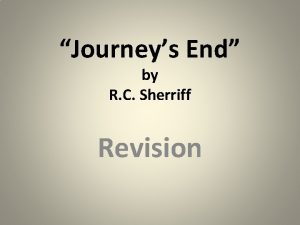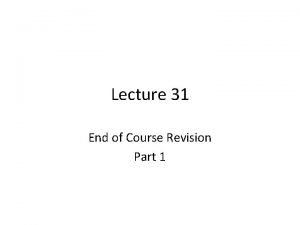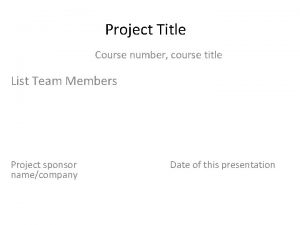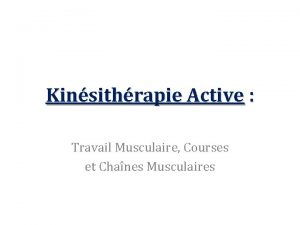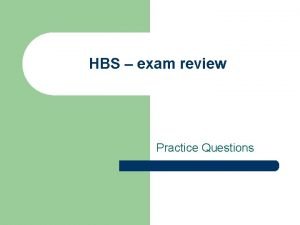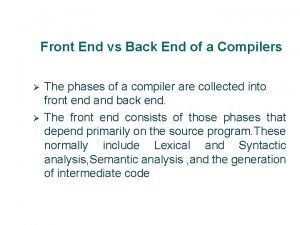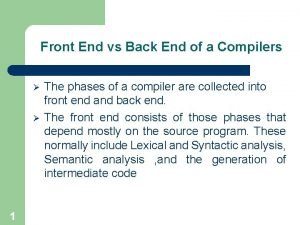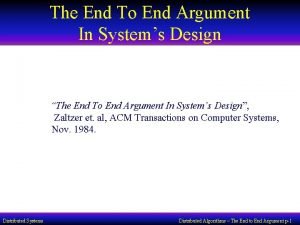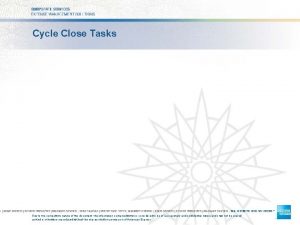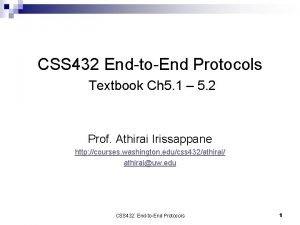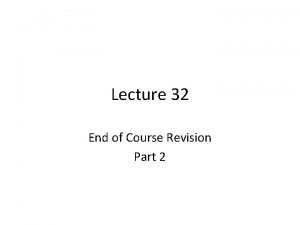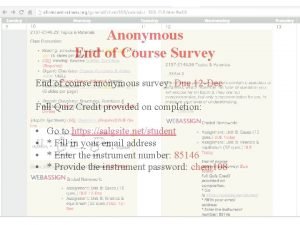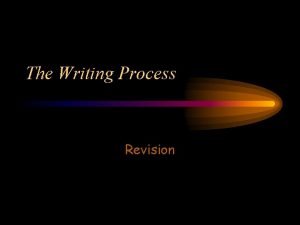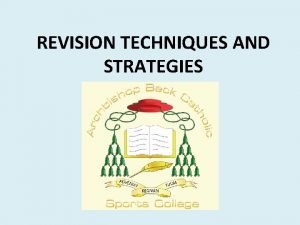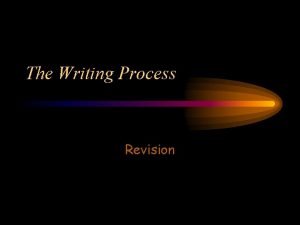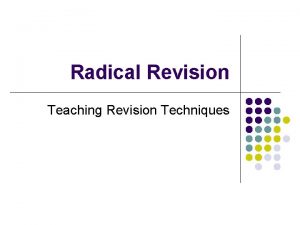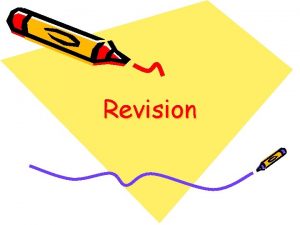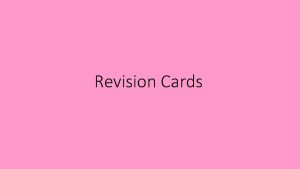Lecture 31 End of Course Revision Part 1



















- Slides: 19

Lecture 31 End of Course Revision Part 1

Review of Lecture 30 • In lecture 30, we learnt how to – Identify and interpret visual organizers – Convert visual information into verbal – Use common expressions for describing – Write short descriptive reports using visual organizers

Objectives of Lecture 31 • In lecture 31, you will – Recall the course contents of the first 15 lectures – Revisit and practice key skills – Revise major structures and vocabulary items

Revision of Lecture 1 • Course orientation – What’s the difference between theoretical and functional English? • Introducing Oneself and Others – What’s the difference between the first and given names? – Do we use the titles (Mr. , Mrs, etc. ) with the first names? • Greetings – When do we say “How do you do”? Is it the same as “How are you”?

Revision of Lecture 2 • Expressing Requests and Enquiries – What’s the difference between enquiry and inquiry? – “What would you like to eat? ” Is it a request or an enquiry? – Which one of these requests is the politest? • Can you inform him, please? • Could you inform him, please? • Would you mind if I asked you to inform him? • Practicing Practical Classroom English – How would you encourage a student who is shy?

Revision of Lecture 3 • Social Interaction: Greetings and Gratitude – How would you congratulate me in the following situations? • • • I just performed Umrah. I won a lottery. I got promoted. My wife gave birth to a baby girl. I moved into my own newly constructed house.

Revision of Lecture 4 • Social Interactions: Inviting & Responding to Invitations – How would you invite your friend to a movie show? – How would you invite your boss to a dinner? – You have been invited to a wedding party. How would you decline the invitation formally? – How would you invite a guest speaker to present her paper in a conference?

Revision of Lecture 5 • Regrets and Apologies – What’s the difference between a regret and an apology? – How would you apologize in the following situations? • For inadvertently sitting in someone’s seat • For missing an appointment. • For arriving late. – What form of verb should be used in the following sentences: • I wish I (not/watch) the football match late last night! I feel very tired now. • I have lost my wallet. I wish I (can/remember) where I put it. But, I can’t.

Revision of Lecture 6 • Following and Giving Directions – What’s the difference between in and into? – Explain the difference between along and across by using them in a sentence. – How would you ask for directions to: • The nearest ATM • The nearby petrol pump • The railway station

Revision of Lecture 7 • Giving Instructions – What are action words? Why are they important for giving instructions? – Can you recall five action verbs for cooking? – How would you give oral instructions for making a cup of tea?

Revision of Lecture 8 • Giving Classroom Instructions – Give instructions for conducting examination. • Writing Instructional Manuals – What are the important parts of an instructional manual?

Revision of Lecture 9 • Asking for and Giving Advice – How would you ask for advice on • Dressing for a party • Travelling to the Northern areas in Pakistan

Revision of Lecture 10 • Reading and Responding to Narrative Texts – What is a narrative? – What are the main elements of a narrative?

Revision of Lecture 11 • Sharing Personal Narratives – How did you take your first ever class?

Revision of Lecture 12 • Retelling and Summarizing Stories – Can you summarize the following stories in a sentence or two? • The foolish Stag • The Boy who cried “Wolf!”

Revision of Lecture 13 • Sharing Life Experiences – Can you share one most memorable event from your life? – What’s the difference between using present perfect tense and past simple tense?

Revision of Lecture 14 • Summarizing Non-fiction – What’s the difference between fiction and nonfiction? – Can you summarize the following text in a sentence or two? • A good personal narrative, like a good story, creates a dramatic effect, makes us laugh, gives us pleasurable fright, and/or gets us on the edge of our seats. Although personal narratives capture true events, sometimes writers embellish or use hyperbole to illustrate a point or for dramatic effect. A personal narrative has done its job effectively if the readers can say, “Yes, that captures what living with my mother feels like, ” or “Yes, that’s what it felt like to lose the championship game. ”

Revision of Lecture 15 • Expressing Likes and Dislikes – Can you explain the difference between the forms of a gerund an infinitive? – Use a gerund or an infinitive in the following sentences: • • I hope (meet) him soon. They would love (help) us. Do you mind (open) the window? I don’t fancy (go out) tonight.

Summary of Lecture 31 • In lecture 31, We – Recalled the course contents of the first 15 lectures – Revisited and practiced key skills – Revised major structures and vocabulary items
 Active revision vs passive revision
Active revision vs passive revision 01:640:244 lecture notes - lecture 15: plat, idah, farad
01:640:244 lecture notes - lecture 15: plat, idah, farad Raleigh's letter journey's end
Raleigh's letter journey's end Revision part 1
Revision part 1 At the end of the lecture
At the end of the lecture Cut brick lengthwise
Cut brick lengthwise Course title and course number
Course title and course number Chaine parallèle muscle
Chaine parallèle muscle Hbs eoc review
Hbs eoc review Heart stroke volume
Heart stroke volume Preload stroke volume
Preload stroke volume Front end of compiler
Front end of compiler Back end of the compiler performs
Back end of the compiler performs Feride kröpil
Feride kröpil End-to-end wireframe parsing
End-to-end wireframe parsing End to end argument in system design
End to end argument in system design End to end accounting life cycle tasks
End to end accounting life cycle tasks End to end delay
End to end delay End to end delay
End to end delay End to end
End to end


